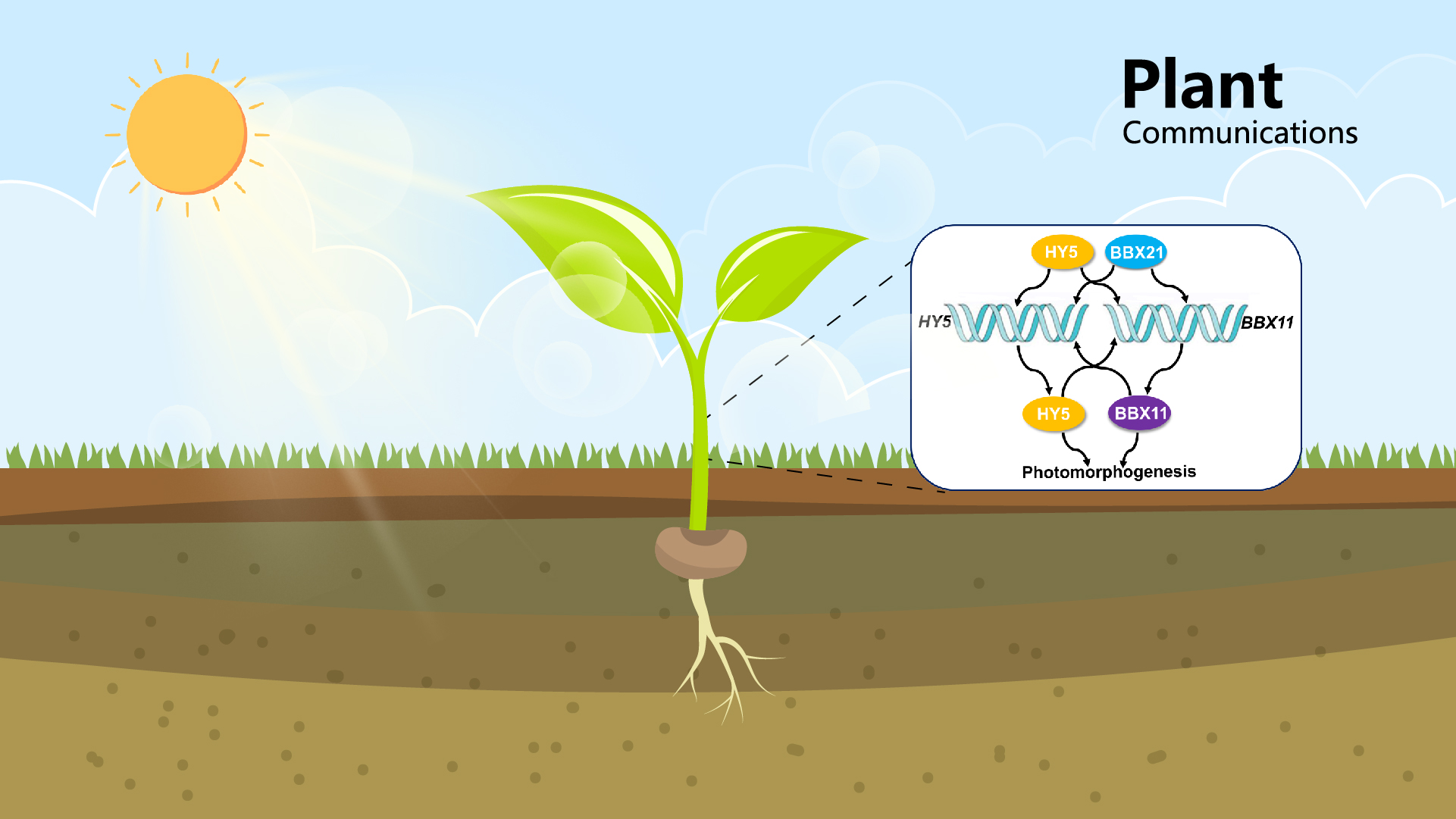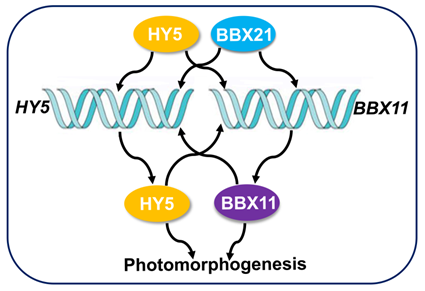Light is an utmost important environmental factor affecting many aspects of plant development. It is also the primary energy source for plants. Recent research at Southern University of Science and Technology (SUSTech) has found a new mechanism for light to trigger the process of transferring a signal throughout an organism, particularly across or through a plant.

On April 16, Chair Professor Xingwang Deng (Biology) led his research team to publish a paper in the high-impact academic journal, Plant Communications. Their paper was titled, “A positive feedback loop of BBX11-BBX21-HY5 promotes photomorphogenic development in Arabidopsis.”
Biologists have known that the influence of light in mediating the growth of seedlings is determined by several proteins. These proteins include photoreceptors, E3 ubiquitin ligase, and molecular-level transcription factors. There have been studies into B-BOX containing proteins (BBXs), which have found that these BBXs play critical roles in the COP1-HY5 regulatory network, which is essential in the development and growth of seedlings.

A working model depicting the positive feedback regulation of photomorphogenesis by BBX11-BBX21-HY5
Light promotes seedling development through rapid changes in about one-third of gene expressions, so working out how the different transcription factors coordinately mediate these changes is vital. The research team found a previously unidentified positive regulator called BBX11. It works in conjunction with other proteins in both light and darkness. The team found that BBX11 created a positive feedback regulation with BBX21 and HY5, concluding that all three provide a transcriptional mechanism for healthy development in response to light in plants.
This finding ensures that plant scientists across the world have a new direction to focus on when it comes to plant development.
Postdoctoral researcher Xianhai Zhao and Senior Research Assistant Dr. Yueqin Heng (Institute of Plant and Food Science) are the co-first authors. Professor Xingwang Deng and Professor Dongqing Xu at Nanjing Agricultural University are the co-corresponding authors. SUSTech is the correspondent unit. Additional contributions came from Peking University.
This research received support from the National Key R&D Program of China, the National Natural Science Foundation of China, Peking-Tsinghua Center for Life Sciences, SUSTech, Nanjing Agricultural University, Nanjing Science and Technology Innovation Program for Overseas Students, and the Jiangsu Collaborative Innovation Center for Modern Crop Production.
Link to paper: https://www.sciencedirect.com/science/article/pii/S2590346220300286
Proofread ByYingying XIA
Photo ByDepartment of Biology, Yan QIU